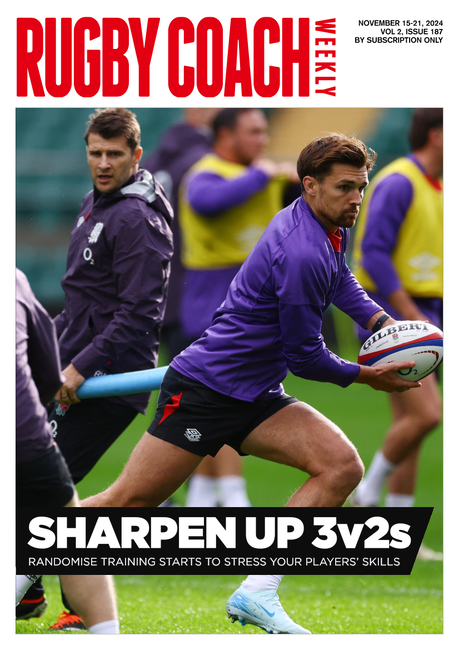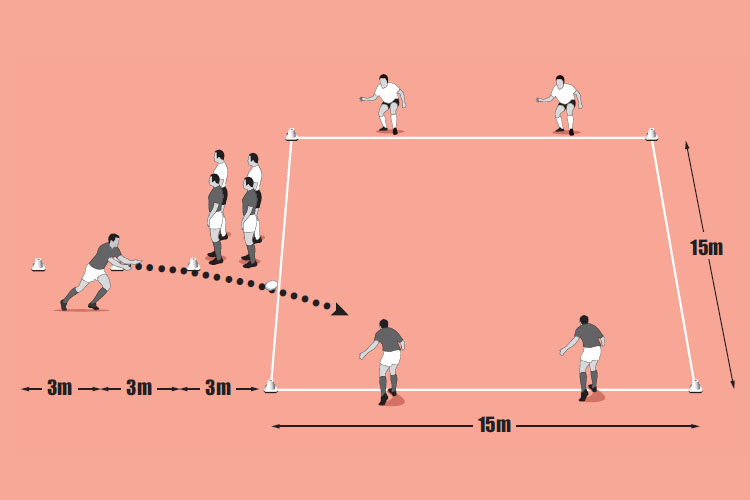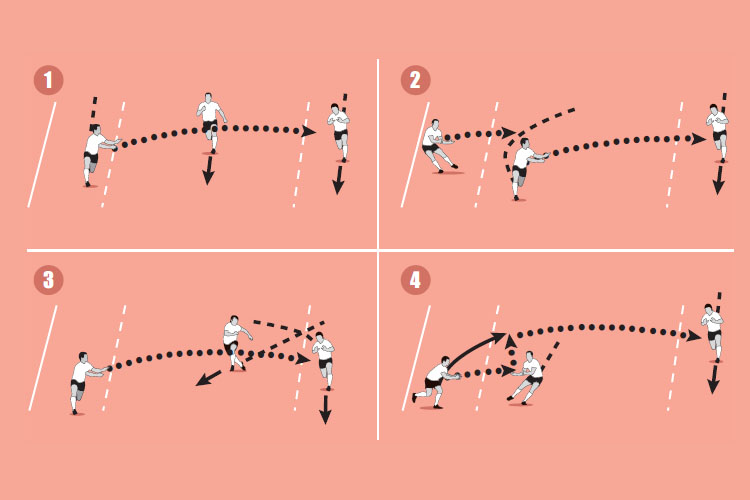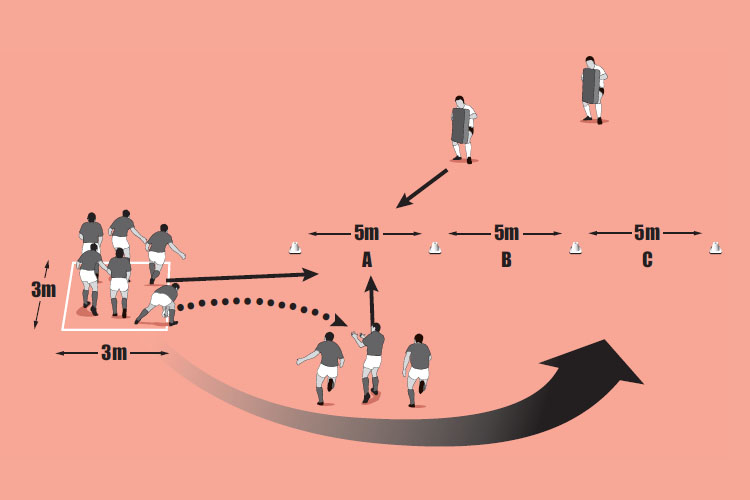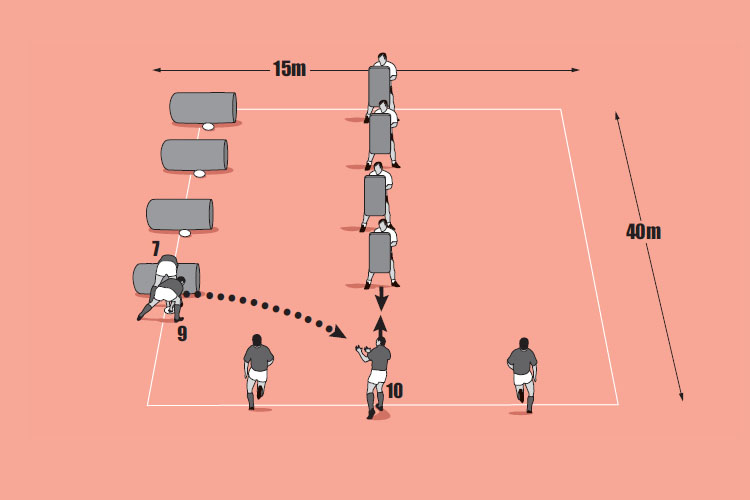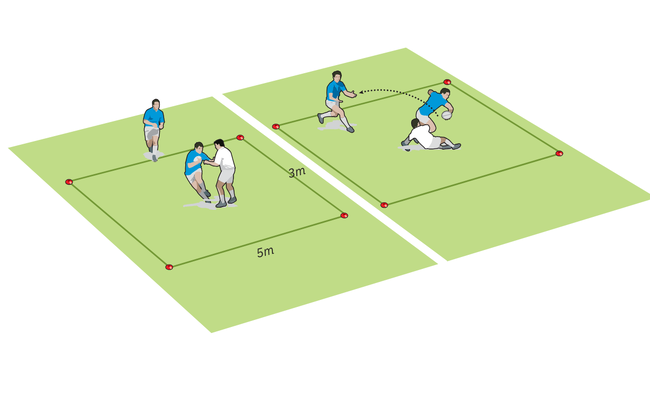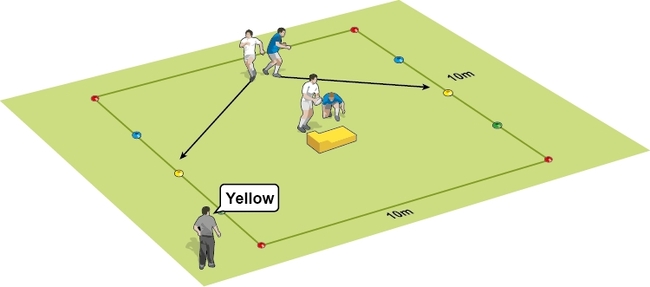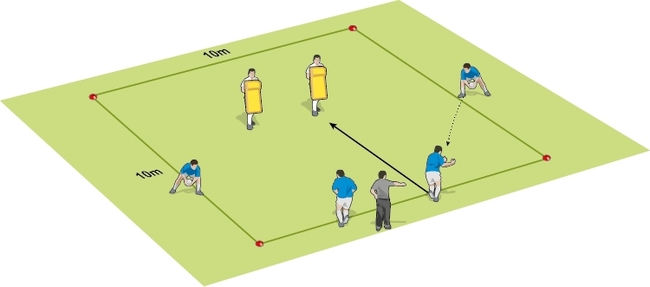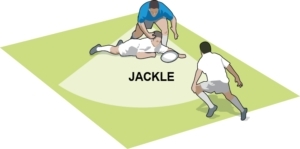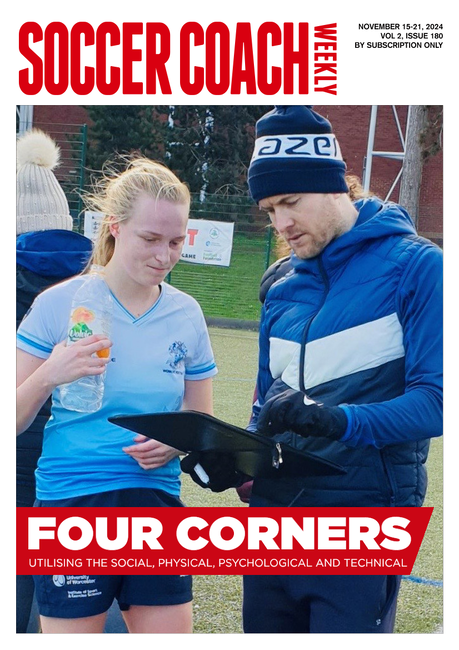Three to win
Whoever is closest to the tackled ball carrier must be prepared to clear away threats. As a general policy, it should take two players to ensure the best and quickest ball, unless the ball carrier has become completely isolated. It requires awareness and communication, which develops from simulating the game situations.
Warm up time: 7-10
Session time: 10-15
Development time: 10-15
Game time: 10-15
Warm down time: 7-10
What to think about
Accurate communication makes support play more effective. If a ball carrier is tackled, he should fight to stay on his feet until he is told it is safe for him to go to ground. The nearest players in support need to tell him this. By doing so, the support players also help the rest of the team get into position. Emphasise that both backs and forwards need to act as clearing players. The game situations will highlight the players who forget that part of the game.set-up
- Concentrate firstly on running forward and moving the ball as quickly as you can.
- If you are close to the tackled player, zone in on him and get into a low driving position over him and the ball.
- Clear the ball away as soon as there are two support players over the tackled player.
- Keep moving the ball wide. 5. Reorganise for the next attack after each tackle situation.
What you get your players to do
Put five attackers with a ball 5m away from a ruck pad holder. Have the ball carrier run into the ruck pad and fall to the ground. The nearest two attackers drive the ruck pad holder back and the ball is passed out to the free player. Swap roles and repeat.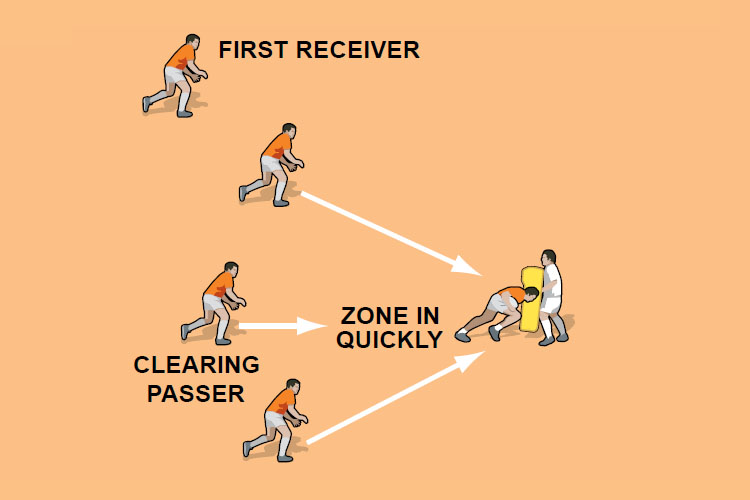
Development
Split your players into groups of eight. Start the first group at one end of the box. Run them towards the other end, passing between them. On your whistle the ball carrier falls as if tackled and presents the ball. The two closest support players move in and secure the ball against an imaginary defence. A clearing passer moves the ball away for the next attack and your next whistle. By doing this, the players have to take up a number of roles and react to the situation they are faced with. You always want the attack to take the ball at pace, so reorganising is important.Related Files
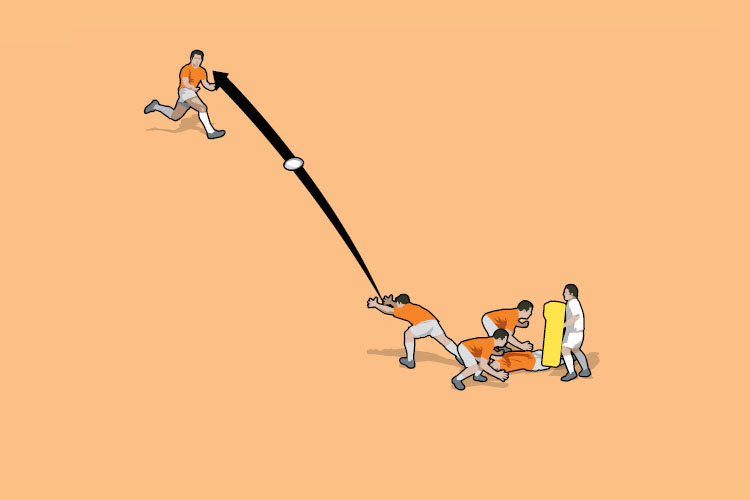
Game situation
Split into two teams of ten. Play a game using touch tackles where the tackled player drops and presents the ball. Two support players must come in and secure the ball before it is cleared away. The defence will always have a numerical advantage, so it should be hard work for the attack. The ball is turned over if you feel the support is slow in arriving at the tackle situation.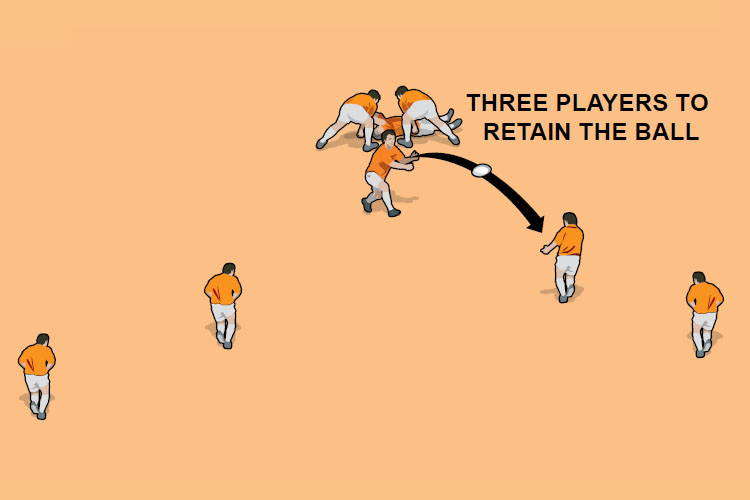
What to call out
- “React and move”
- “Zone in on the target”
- “Present the ball with two hands”
- “Pace onto the ball once its cleared”
Newsletter Sign Up
Coaches Testimonials

Gerald Kearney, Downtown Las Vegas Soccer Club

Paul Butler, Florida, USA

Rick Shields, Springboro, USA

Tony Green, Pierrefonds Titans, Quebec, Canada
Subscribe Today
Be a more effective, more successful rugby coach
In a recent survey 89% of subscribers said Rugby Coach Weekly makes them more confident, 91% said Rugby Coach Weekly makes them a more effective coach and 93% said Rugby Coach Weekly makes them more inspired.
Get Weekly Inspiration
All the latest techniques and approaches
Rugby Coach Weekly offers proven and easy to use rugby drills, coaching sessions, practice plans, small-sided games, warm-ups, training tips and advice.
We've been at the cutting edge of rugby coaching since we launched in 2005, creating resources for the grassroots youth coach, following best practice from around the world and insights from the professional game.


